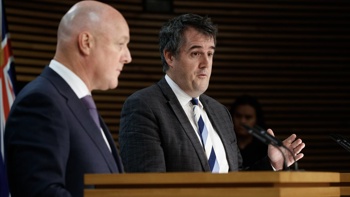
An analysis of mortgage shock caused by rising interest rates has calculated that many Aucklanders will be paying $900 per fortnight more than they were at the lower rates.
Economists at Westpac have today released an overview headed ‘Weathering the storm’.
There, they forecast how much more mortgage holders in Auckland will be paying.
“If you live in Auckland, where house prices tend to be higher, that increase in interest costs will be around $900 per fortnight,” they wrote.
Large increases in interest rates will take a big toll on many households’ disposable incomes.
“For example, suppose you purchased an average-priced house in 2021 with an 80 per cent mortgage fixed for two years. Compared to what you were paying in 2021, your minimum fortnightly payments in most parts of the country are set to rise by around $530 per fortnight when you go to re-fix your mortgage.”
But it’s $900/fortnight for many others.
“On average, borrowers in this example would need to spend around 12 per cent more of their disposable income to meet the minimum repayments on their mortgage. For many families, that would more than offset the growth in their incomes over the past two years,” the economists wrote.
Yet the Real Estate Institute has found that prices in this city are down by around 18 per cent since November 2021. House sale volumes have fallen too.
The combined impact of higher interest costs, large increases in consumer prices and a weaker housing market will be a significant drag on demand.
“Many households will be forced to wind back their spending due to the mounting pressure on their finances, and many others will do so out of an abundance of caution. Putting that all together, we expect to see per-capita spending levels falling by around 2 per cent over the next few years,” they said.
/cloudfront-ap-southeast-2.images.arcpublishing.com/nzme/3UHX2THON54V5TIIHVZ4Y2J6KE.jpg)
Michael Gordon is Westpac's chief economist. Photo / Supplied
Conditions for borrowers will become a lot tougher over the coming year.
“Close to half of all fixed-term mortgages will come up for repricing over the next 12 months. In many cases, borrowers will face refixing at substantially higher interest rates. For example, borrowers who fixed for two years in early-2021 may have secured a rate in the 2.5 to 3 per cent range. Those same borrowers are now looking at a two-year rate that’s more than 3 percentage points above what it was back then,” the overview said.
The piece on the effect of rising interest rates was headed ‘housesholds squeezed’.
Around 90 per cent of New Zealand mortgages are on fixed rates.
“That’s shielded many borrowers from the large increases in interest rates over the past year. In fact, accounting for the extent of mortgage rate fixing over the past few years, the ‘effective’ average mortgage rate that New Zealand borrowers are actually paying is still only around 3.8 per cent – well below the current interest rates that are on offer. As a result, the share of household incomes being spent on debt servicing is still sitting close to multi-decade lows,” the overview said.
Barfoot & Thompson is later this week due to release its data for January.
Data out in December showed Auckland and Northland unsold residential properties hit a 12-year high in November, with 5052 listed on the market by the city’s biggest agency but yet to find buyers.
That agency’s average number of properties for sale during any one month last year was just 3353. In 2020 it was only 3759.
But the agency’s data now shows a swelling number of available listings at the end of the month.
The previous record was set in February 2011 when the agency had 6053 properties for sale. During that year it had more than 5000 listings at the end of March, April, May and November.
The Herald has reported how to cope with rising mortgage repayments.
Mortgage rates fell to record lows of around 2.25 per cent as the official cash rate was cut to 0.25 per cent in May 2020 but the OCR has risen sharply since October 2021.
A one-year fixed term rate is now over 7 per cent for a standard rate and around 6.5 per cent for those with 20 per cent equity.
For a borrower with a $300,000 mortgage, jumping from a 3 per cent interest rate to 6.5 per cent could mean having to find an extra $600 a month while a $500,000 borrower may have to find an extra $1000 a month - all while other costs are rising.
Take your Radio, Podcasts and Music with you









